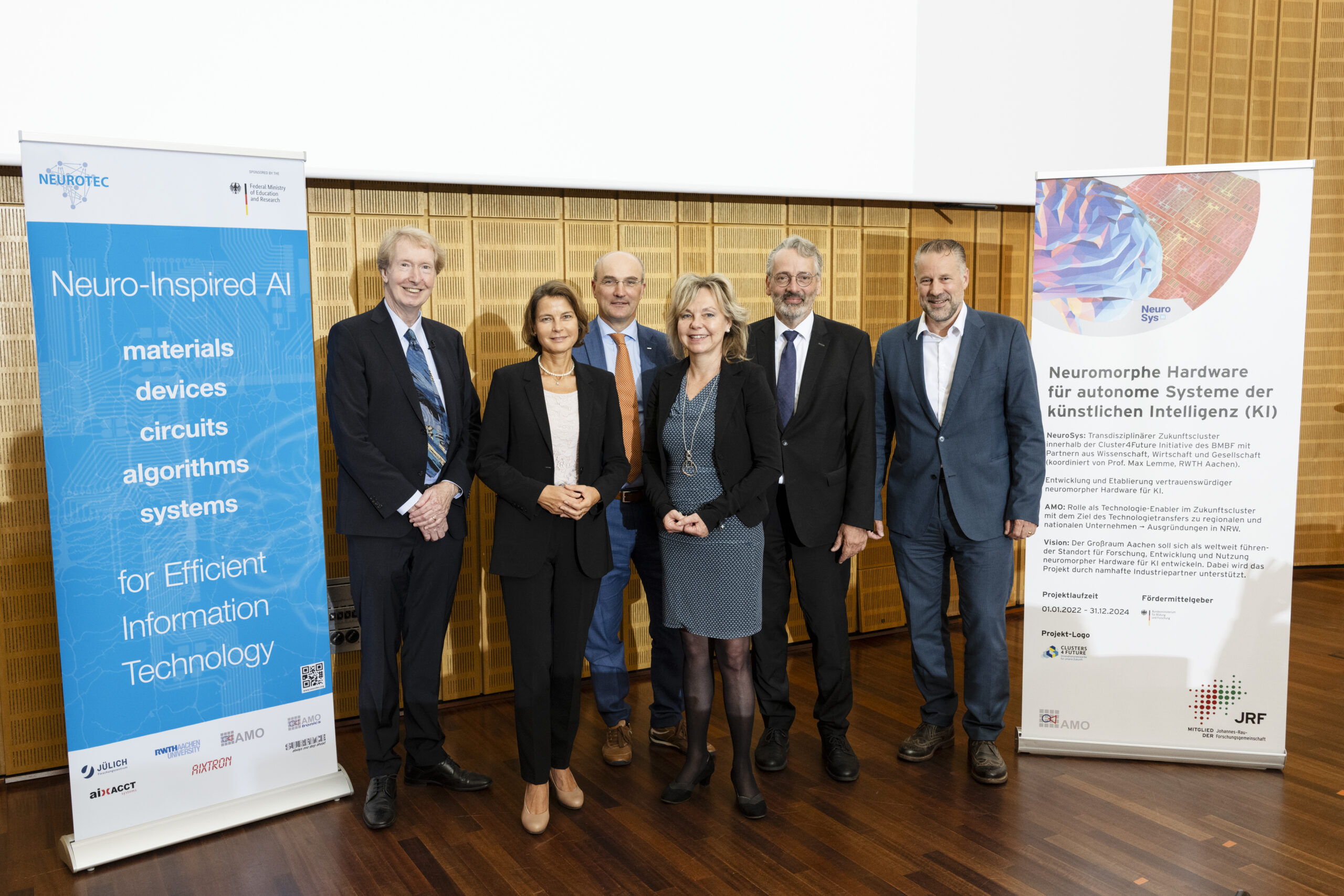
From left to right: NEUROTEC Coordinator Prof. Rainer Waser, FZJ Board Chair Prof. Astrid Lambrecht, RWTH Rector Prof. Ulrich Rüdiger, BMBF State Secretary Prof. Sabine Döring, MKW-NRW State Minister Thorsten Menne, NeuroSys Coordinator Prof. Max Lemme © Kurt Steinhausen Forschungszentrum Jülich
Neuroinspired computer chips could make the decisive contribution to meeting the growing energy requirements of artificial intelligence (AI). Researchers presented the current status and future prospects of this groundbreaking technology in the course of the Jülich-Aachen Neuromorphic Computing Day on August 30, 2023.
By mimicking the way the human brain works, neuromorphic chips offer an enormous increase in energy efficiency and thus only open up groundbreaking possibilities for applications such as autonomous driving and Industry 4.0 through real-time data processing. Designed in close collaboration between RWTH Aachen University, Forschungszentrum Jülich and partners from high-tech companies and start-ups, researchers offered insights into their work. In addition to around 200 guests from science, industry and politics, BMBF State Secretary Sabine Döring also accompanied the event.
Close cooperation between research institutions and companies in the region is at the heart of this initiative. The model enables the direct transfer of research results to industry and strengthens regional innovative power. Not only do regional structural change and job creation play a role here, but also the vision of independent chip production in Germany.
“With our research, we span the entire value chain, including sociological and ethical issues that disruptive technologies always raise. This offers opportunities at many technological levels for regional companies and startups to accelerate structural change. We are already seeing initial effects on the labor market and business investment. In the long term, semiconductor manufacturing in the region would ideally complement the existing, comprehensive and internationally recognized expertise and infrastructure and once again significantly increase the attractiveness of the region for the excellently trained brains from the research center and RWTH,” sums up NeuroSys coordinator Prof. Max Lemme from RWTH Aachen University and Managing Director of AMO GmbH.
The impressive future prospects of this technology and the cooperation between research and industry in the region thus create a dynamic that not only drives groundbreaking technologies, but also inspires young talents to get involved at RWTH Aachen University and contribute to this exciting field of research.
Further information on the Jülich-Aachen Neuromorphic Computing Day, as well as on the NEUROTEC project and the NeuroSys future cluster, can be found on the Forschungszentrum Jülich website.




Leave a Reply